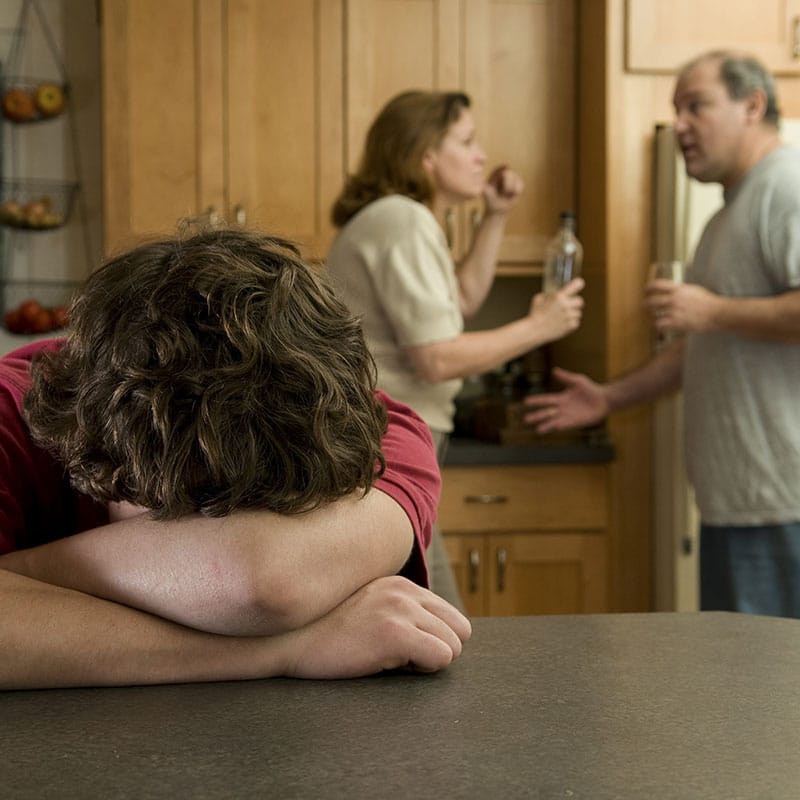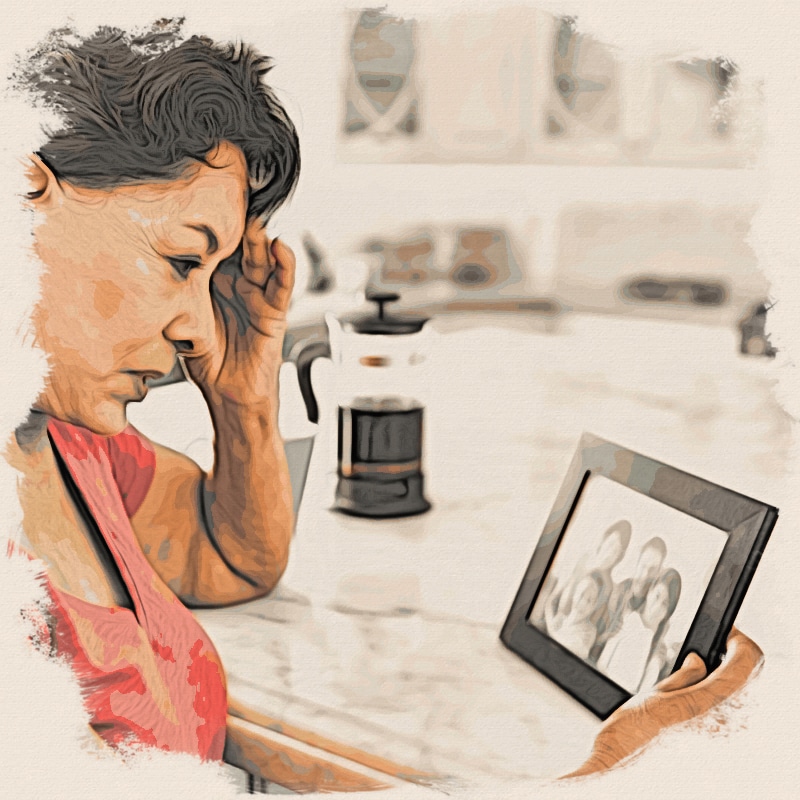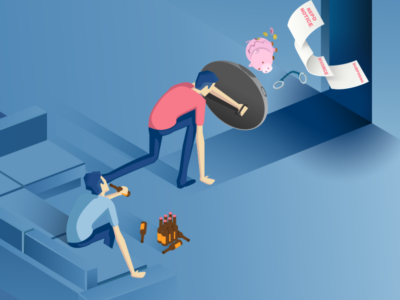When people discuss the impact of addiction, the focus is often on the addicted individual. While no one endures the consequences of chronic substance abuse at the same level as the user, addiction affects other family members as well, making family addiction recovery an important factor in a drug-free life.

Families affected by addiction, particularly children, are at increased risk for maltreatment compared with other households. Addiction is a disease that impacts the whole family. Those closest to an alcoholic or a drug addicted individual have unique family roles in the development of addiction and will play an enormous part in the addiction treatment process.
Call us today at 772-774-3872 if addiction is impacting you and your family.
The Devastating Impact of Addiction on Families
In recent years, the American family unit has shifted away from the traditional, nuclear family to one that comes in all forms. There are single-parent households, blended families, multi-generational families and foster families. The makeup of your family unit will influence the impact that addiction has on it.
 For example, a parent of small children may try to overcompensate for the shortcomings of his or her substance abusing spouse, while children of an alcoholic may begin taking on adult-like responsibilities that are not indicative of their developmental stage. Children often create intricate systems of denial to shield them from the realities of a parent’s alcohol or drug abuse habit, paving the way for the development of mental disorders later in their life.
For example, a parent of small children may try to overcompensate for the shortcomings of his or her substance abusing spouse, while children of an alcoholic may begin taking on adult-like responsibilities that are not indicative of their developmental stage. Children often create intricate systems of denial to shield them from the realities of a parent’s alcohol or drug abuse habit, paving the way for the development of mental disorders later in their life.
In situations with aging parents of addicted children, the parents often maintain overly-dependent relationships with their children, keeping them from valuable learning experiences during this transitional period. [1] One well-regarded study outlined multiple characteristics that are likely to be found in a family unit where parents or children have substance use disorders:[2]
Negativism
All communication among family members is negative, coming in the form of complaints and criticism. The overall mood of the home is a negative one.
Parental Inconsistence
The home is an environment that lacks stability, clear boundaries or any form of consistent enforcement. Children are confused because they don’t know what to expect from parents and cannot adjust behavior accordingly.
Parental Denial
Regardless of mounting evidence and an abundance of signs, parents steadfastly deny their child(ren) has any addiction or substance abuse problem.
Miscarried Expression of Anger
Due to the lack of proper functioning in the home, family members are likely to express displeasure and outrage in the form of substance abuse.
Self-Medication
In an effort to cope with the negative atmosphere in the home or with feelings of depression or anxiety, parents and children may resort to drug or alcohol use.
Unrealistic Parental Expectations
By parents setting expectations too high, children either obsessively strive to overachieve while never feeling anything is good enough or completely excuse themselves from doing anything because they feel failure is inevitable.
Every family unit will be impacted differently, and in all situations, a restructuring of relationships within the family is necessary in homes troubled by addiction and co-occurring mental health disorders. Children of alcoholics and drug addicted parents are more likely to get into trouble, perform poorly in school or become substance abusers themselves.[3],[4]
The Important Role Of Family Members In Substance Abuse Treatment

Family therapy is substantial to successful addiction recovery treatment. The spouses, children, parents and siblings of people with addictions are affected on multiple levels by their loved one’s substance abuse. Likewise, family members also have a positive or negative impact on the development of addiction. When someone you care for has a drug or alcohol abuse problem, the natural reaction is to want to do whatever you can to help him or her fix the problem.
In general, the intentions are always good, but it can be difficult to make the distinction between helping and enabling. In short, helping is doing something for someone who cannot do it alone. Enabling is doing something for a person who can and should be handling the task solo.
What is Enabling?
Enabling behavior can manifest itself in many forms and includes any behavior that shields family members from facing the consequences of his or her actions. While it may seem like you’re helping your husband by covering for him when he misses work due to drinking too much the night before, you’re really just enabling him to continue abusing alcohol without any fear of negative ramifications.
Many times, the hope is that by protecting the substance abuser from job loss, financial ruin, poor academic performance and other negative results of addiction, that eventually he or she will recognize the error in their ways and decide to change.
The problem with this thinking is that it’s these very consequences that often leads substance abusers to get help. By protecting your loved one from the inevitabilities of drug or alcohol abuse, you enable him or her to keep going down the wrong path.
Examples of Enabling Behavior:

- Making excuses for your addicted family members
- Lying to cover up for drinking or drug use
- Bailing him or her out of jail or paying legal fees
- Avoiding discussions about substance abuse for fear that the response will be negative
- Having to pay bills that the addicted person was supposed to pay
- Loaning money for drug or alcohol purchases
- Trying to drink or do drugs with your addicted loved one to strengthen the relationship
- Threatening to leave but never doing so
- Finishing tasks that your addicted family member was supposed to finish
What is Helping?
Watching your spouse, sibling, child or parent fight a losing battle with addiction can be frustrating and heartbreaking. In many cases, it can become overwhelming and cause close family members to lose hope and withdraw from the addicted individual. “If he doesn’t care, why should I?” is a common sentiment felt under these circumstances.
However, it’s at this time that your loved one needs you more than ever before. Left untreated, alcoholism and drug addiction almost always get worse. No matter how upset you are with your addicted loved one, giving up on him or her is never the answer. Here are some ways you can help in addiction recovery and fix broken relationships in your family.
Educate Yourself

One of the important family roles in addiction recovery is to know the signs and symptoms of addiction and learn about its impact on the user and those closest to him. The entire family should learn everything they can about addiction. Through books, documentaries, support groups, therapeutic sessions, and expert consultations, family members can foster empathy, compassion, and a non-judgmental attitude towards the family member that is grappling with addiction. This also allows families to develop a set of essential coping mechanisms, communication strategies, and resilience-building tools to effectively navigate the challenges and obstacles that may arise along the family member’s recovery.
Say Something
Don’t just stand idly by while your loved one keeps getting worse. Speak up and let your concerns be heard. In many cases, the addicted party may not have realized how substance abuse had become habitual. Don’t wait for “rock bottom.”
Be Drug and Alcohol Free
It will be hard for you to say something about a person having a substance abuse problem if you have one yourself.
Don’t Expect an Immediate Change
It’s nearly impossible to overcome alcohol and drug abuse without treatment and very difficult to do so with it. Be realistic about your expectations. The family role in addiction recovery can last for months or even years. Additionally, coping skills develop through time with the proper addiction medicine, therapies and family support system.
Be the Support He or She Needs to Overcome Addiction
Once your loved one decides to get substance abuse treatment, family involvement is a must. The onus falls on you and others close to him or her to attend meetings, provide a substance free environment and be a shoulder to lean on during rehab and throughout recovery. The emotional weight that families often bear can be healed in these support groups’ therapy sessions.
Family Therapy at Behavioral Health Centers

Behavioral Health Centers is a fully accredited drug and alcohol addiction treatment facility located in Florida. We specialize in helping people with addictions reclaim control over their lives and bringing families closer together.
Our family addiction treatment program is available for anyone who needs it. We offer holistic substance abuse treatment which includes family therapy sessions, group therapy, aftercare recovery management, mental health services and more.
Having an understanding that someone is addicted can be a very valuable and empowering tool for a successful recovery and health. Chronic substance abuse is devastating to families of individuals with active addiction, but an effective addiction treatment can begin the process of reversing the damage. Learn more about how we can help by contacting Behavioral Health Centers today.
- https://www.ncbi.nlm.nih.gov/books/NBK64258/
- Reilly, D.M. Drug‐abusing families: Intrafamilial dynamics and brief triphasic treatment. In: Kaufman, E., and Kaufmann, P., eds. Family Therapy of Drug and Alcohol Abuse. 2d ed. Boston: Allyn and Bacon, 1992. pp. 105–119.
- https://pubs.niaaa.nih.gov/publications/aa09.htm
- American Psychiatric Association https://www.psychiatry.org/patients-families/psychotherapy
- SAMHSA, Center for Behavioral Health Statistics and Quality, National Surveys on Drug Use and Health (NSDUHs), 2009 to 2014.





